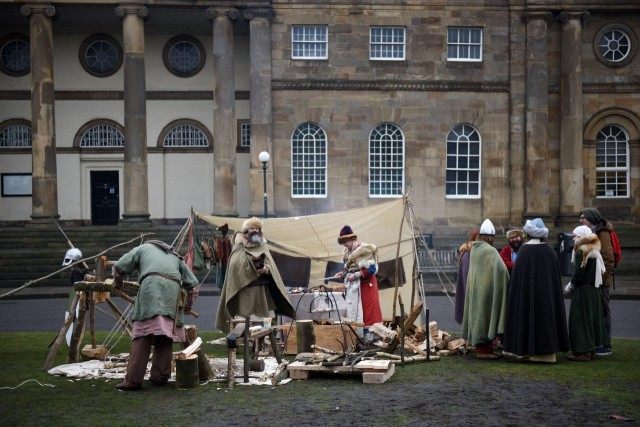From September, GCSE History students across the country will be taught that Africans arrived in Britain before the English, in a new course which draws heavily on the politically correct work of a Marxist academic. The course has been slammed as “indoctrination” by concerned historians and academics who warn it is “dangerous”.
The new module, due to be introduced by the Oxford and Cambridge Exam board, has been created in conjunction with academics from the Black and Asian Studies Association. According to the Mail on Sunday, the course literature states: “This course will enable students to learn how the movement of people – European, African, Asian – to and from these islands has shaped the story of this nation for thousands of years.
“The history of migration is the story of Britain: in 1984, Peter Fryer wrote, “There were Africans in Britain before the English came.’”
Fryer’s book from which the quote is taken, Staying Power: The History of Black People in Britain, argues that African and Asian migration to the British Isles over the last two thousand years profoundly shaped the course of British history.
But the early African visitors Fryer refers to in his opening page were a Roman legion of North Africans, who were briefly stationed on Hadrian’s Wall in the 3rd Century before the arrival of the Anglo-Saxons to the UK.
The 500 or so ‘Aurelian’ Moors, name for the Roman Emperor Marcus Aurelius, manned a fort near Carlisle, but there is no evidence that they settled in the area. By the year 383, Rome had pulled its troops from northern England for the last time.
“This stands history on its head, projecting back on to the past something that isn’t true,” said historian Sir Roy Strong, author of The Story of Britain.
“The only Africans who came here were a few with the Romans who came and then left! I find it disturbing that our children should be taught something that is clearly designed to feed into contemporary problems rather than tell our island’s story properly,” he added.
Professor Alan Smithers, of Buckingham University, a specialist adviser to the Commons Education Committee, said: “This seems to be aimed more at indoctrination than education. It is dangerous because a cohesive society depends on an authentic shared view of history.”
But the course, which includes a course headed ‘Population diversity in England before 1066’ despite nominally taking as its starting point the Middle Ages, has been defended by the academics involved in the creation of the course, who insist that it plays a valid role in examining the issues of today.
“It is an outstanding example of how a long view of history helps us to understand and to find a place for ourselves in contemporary society, said York University’s Professor Mark Ormrod, one of the historians involved in providing research for the course.
“Our research project shows how, for example, in the late Middle Ages, no one was more than ten miles from an immigrant.”
Mike Goddard, head of history at OCR, hit back at accusations that the course presents a political agenda, not history, saying: “There is no political bias. The GCSE will present facts. It is not pushing any particular argument.”
And Martin Spafford, of BASA’s education committee, insisted: “students will hear both positive and negative views about migration. It’s been a controversial subject and we don’t shy away from that.”
Nonetheless, its critics have called out the course as politically correct propaganda.
Chris McGovern, chairman for the Campaign for Real Education said: “The country is being sold down the river by the politically correct brigade and national identity sacrificed for minority groups to feel included. It’s pro-immigration propaganda.”
V.S. Naipaul, the Booker and Nobel prize winning author commented: “Once again political correctness is distorting our history and the education of our children.
“This absurd supposition of Africans inhabiting Britain before the English only goes to show how our once esteemed centres of learning, Oxford and Cambridge, have been insidiously eroded by a dangerous dogma that, very like Islamic State today, wrought misery and havoc in Russia, China and the Eastern bloc, where for all practical purposes it has failed.”
A spokesman from the Department for Education said: “The law is crystal clear – all political discussions in schools should be unbiased and balanced.”

COMMENTS
Please let us know if you're having issues with commenting.